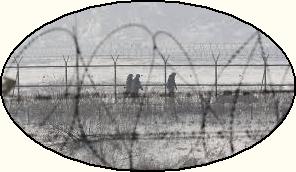Spadina Literary Review — edition 7 page 19
.../
There was no love at Camp 14. Shin’s parents lived apart. The guards, playing god, had assigned a woman to his father as a reward for being a good lathe operator. Shin was raised by his mother in a barrack shared by four families. There was no furniture. They slept on a concrete floor. Shin considered his mother, like everyone, a competitor for food. He would steal food from her, and she would beat him.
At so-called school, he received minimal education — just enough as would suit a life of hard labor. The school day began with chong-hwa (“total harmony”), a criticism session. As exercises, students had to write how they had failed to work hard and follow rules.They were taught that they were in prison due to the crimes of their parents, and therefore they should continually report what their parents were saying or doing or neglecting to do.
Shin’s father’s “crime” was that his brothers had fled North Korea to go to South Korea during the Korean War. Such a crime was enough to get all your relatives rounded up and sent to camp, where the family line would in all likelihood come to an end.

No world but this
The main thing you learned at Camp 14 was to squeal on others. Squealing was the key to survival. By the same token, the prisoners learned to distrust, even to detest one another.
Shin once saw a six-year-old girl beaten to death by a teacher for concealing five kernels of corn. He hadn’t felt sorrow for her, hadn’t reflected at all. That was simply life in the camp. There was no other world to compare it to.
Shin Dong-hyuk knew nothing of South Korea or any other nation. He did not know the world is round.
In 2003, working in the camp’s garment factory, Shin met a prisoner named Park who in better times had lived in Europe and China. From him Shin began to learn that Camp 14 was an aberration on the face of the planet. Shin especially liked to hear about the apparently plentiful food in China and South Korea. The more he heard, the more he yearned to escape. That gave him a future, he had something to aim for. He began planning along with Park, the only person he trusted. Park could lead him to China.
Shin visited his dad before the escape and shared a New Year’s supper of cornmeal and cabbage soup with him. Shin showed no emotion, gave no hint of leave-taking. Still, I imagine this visit was as near as Shin could come to saying sorry and goodbye. He knew that when the guards learned of the escape, they would round up his father.
The opportunity came for Shin and Park in January 2005 when they were assigned to trim trees and stack wood near the electric fence. At dusk, in an interval between guard patrols, they made a run for it. Shin was supposed to go first but, as he later described it, he slipped on an icy patch. Park reached the fence first and tried to fit himself thru the lowest strands but got snagged and was electrocuted just like that.
Shin clambered over Park’s drooped body. He was almost entirely thru when his legs slipped off Park and got burned on the wires. But he survived. Park’s body, Harden explains, was shunting enough current into the ground to save Shin Dong-hyuk's life. He ran across the snow, legs oozing blood, till he reached tree cover.